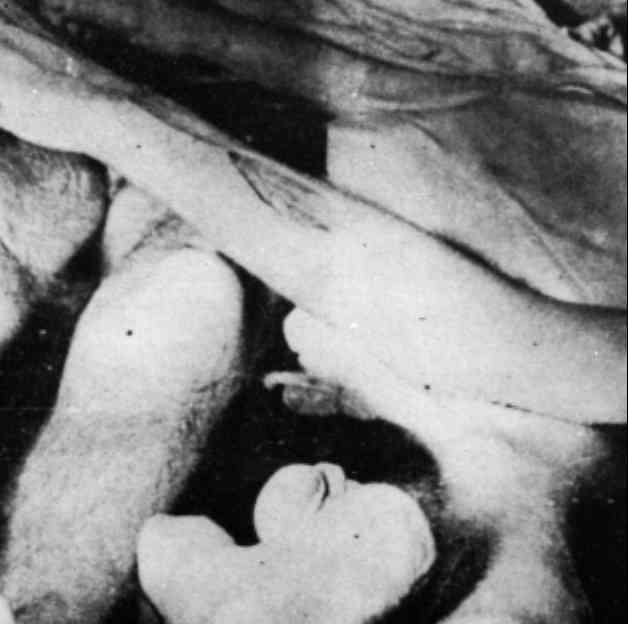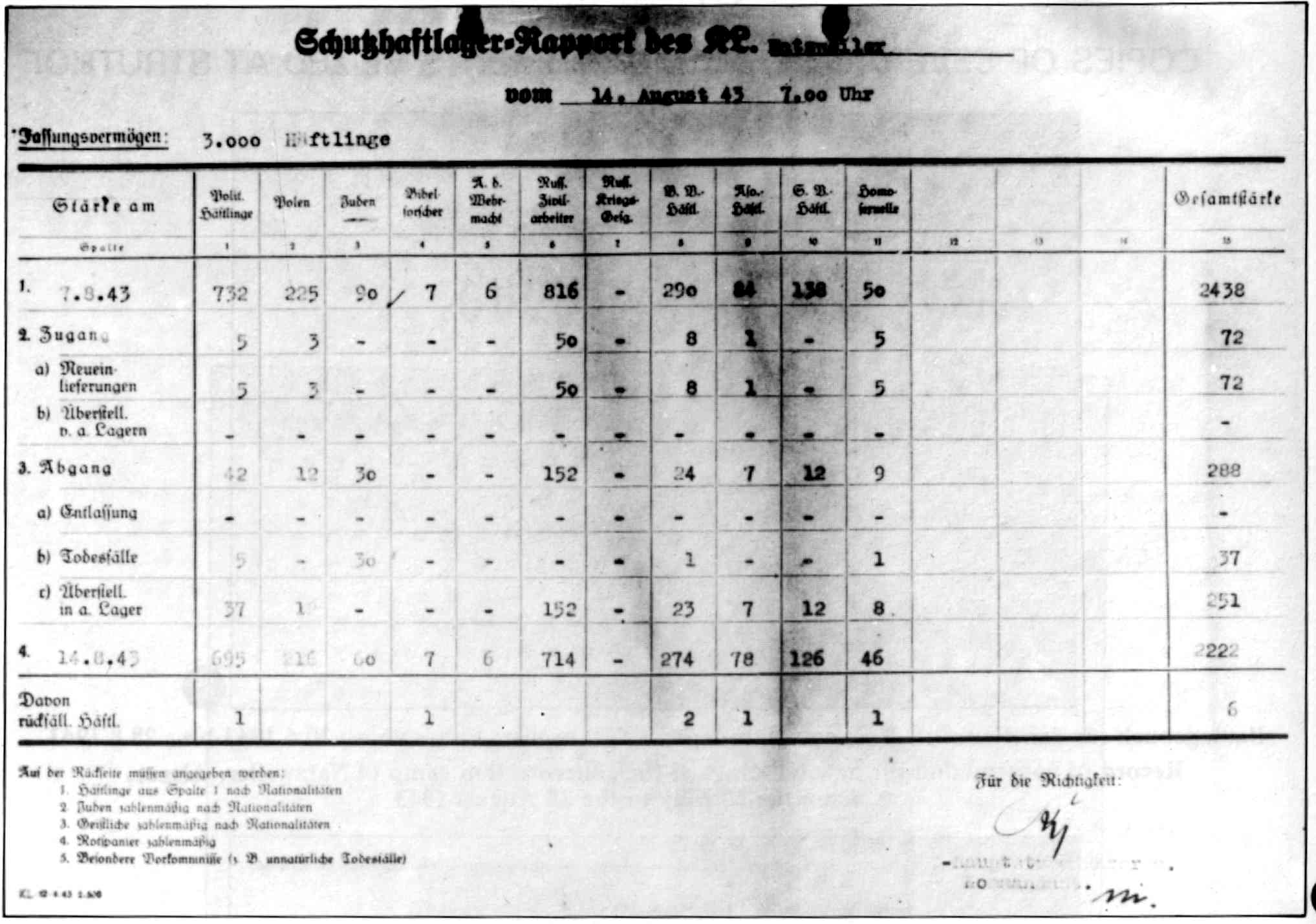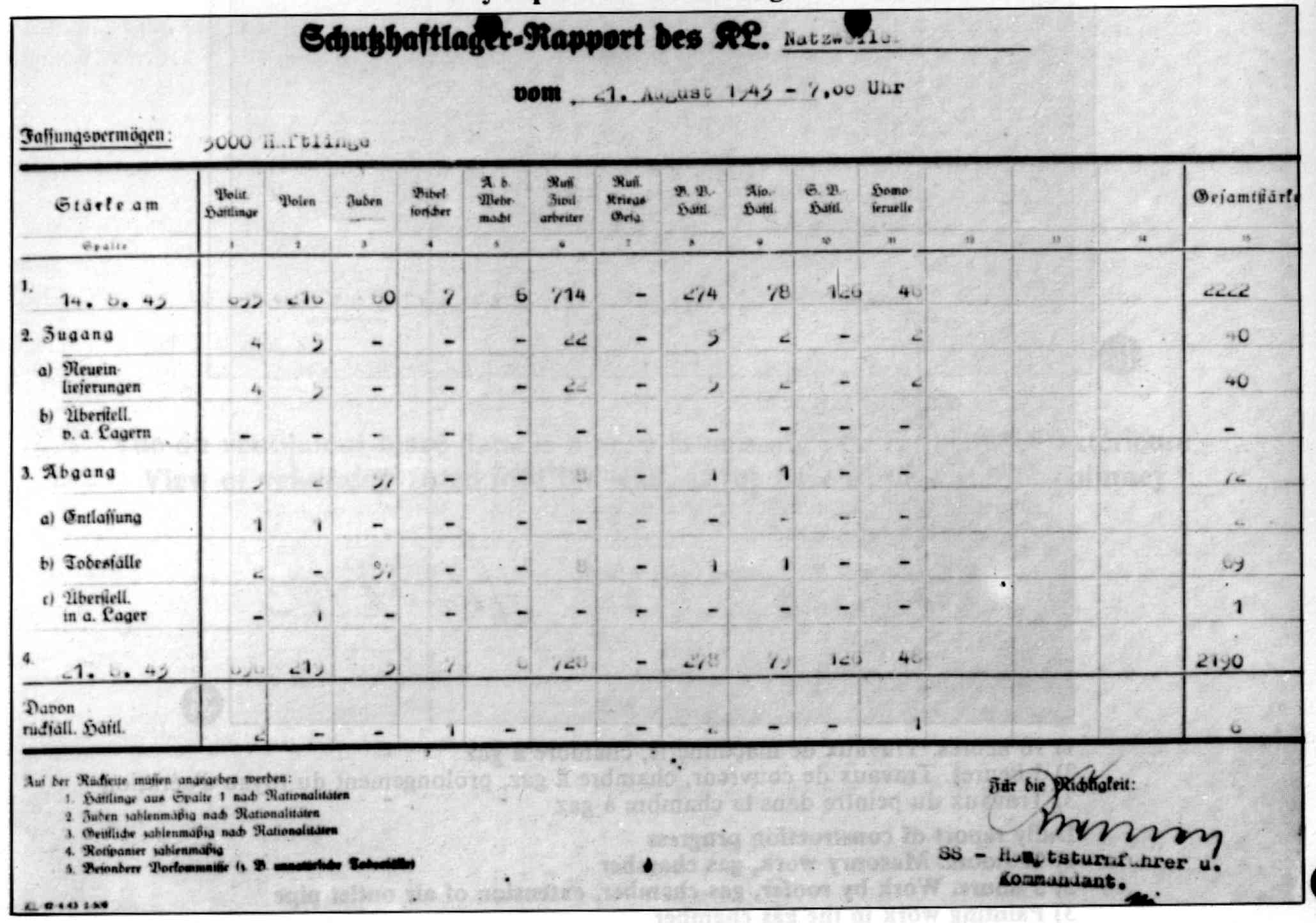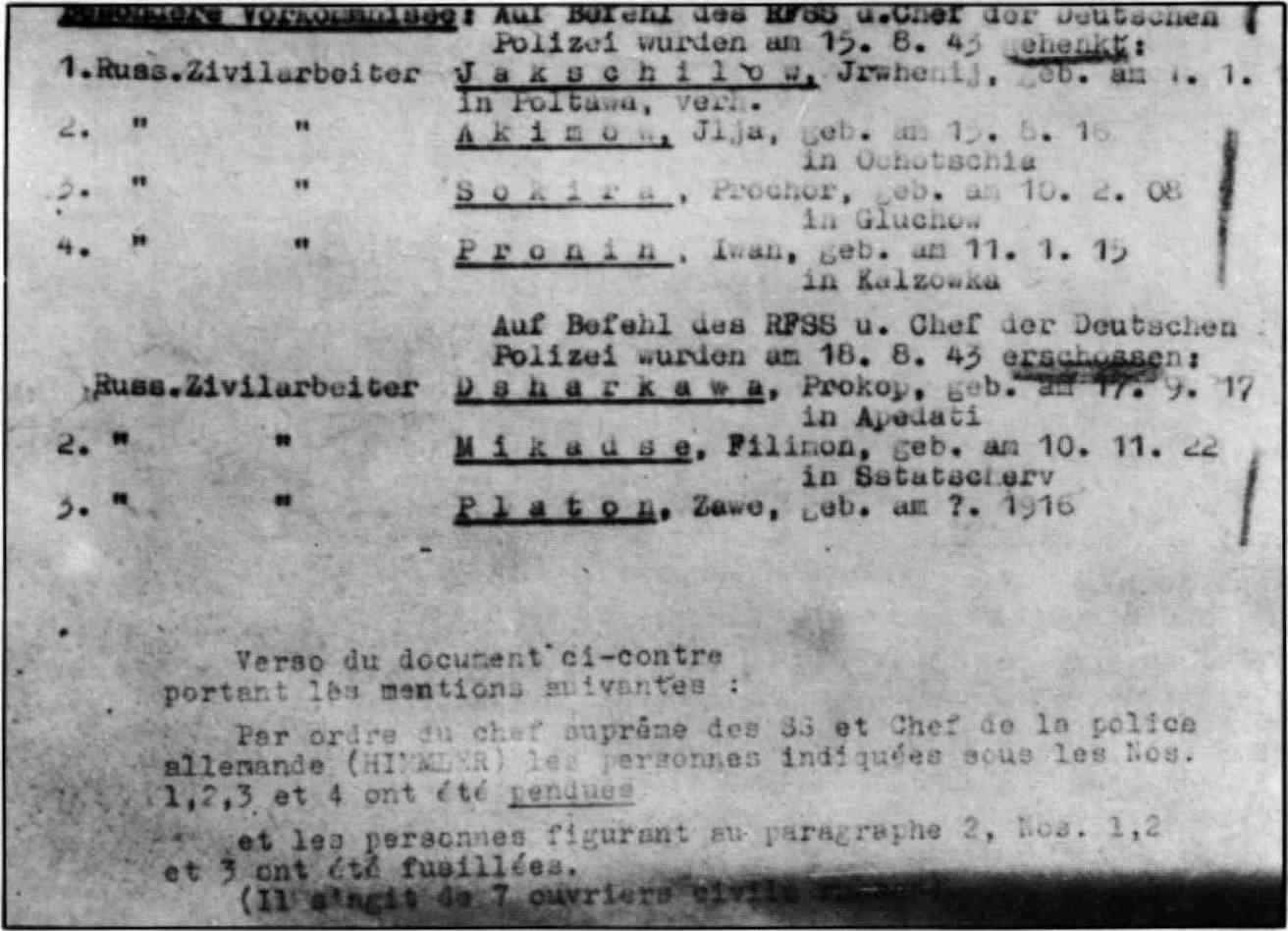 |
 |
THE EVIDENCE
The first piece of evidence is that Kramer spoke in his second sworn statement of 86 bodies, and not of 87. He seems therefore informed of the number due to a victim being killed as a result of resisting being forced into the gas chamber and his body not being usable. Evidently this could have been told him by the interrogator, and we will not insist on the point.
On the contrary, he says since the first interrogation that the victims were provided from Auschwitz: this he could not have known except by his work, or in recognizing that the prisoners were tattooed on their forearms. Kramer was commandant at Auschwitz previously and was familiar with this detail. When Kramer said the victims came from Auschwitz, this gives a lot of weight to the trustworthiness of his statements and of the dispatches of the Ahnenerbe that we cite later.
The 86 bodies had all been decapitated. They were mixed with sixty other cadavers of known origin, some Russian prisoners who died at the camp of Mutzig who had been openly transported to the Civil Hospital.
The majority of the bodies had been dismembered with a scythe, with the exception of 16 among them of which 3 were women, whose bodies were found in the bottom of the tanks. Thus for one of them, a woman of some twenty years old, the autopsy discovered "on the left forearm, on the outer side, ... a blue tattoo, the number 42 329. Underneath was tattooed a triangle, the point down."
All the bodies recovered at the morgue of Strasbourg had a number tattooed on the forearm: where earlier the great majority had a piece of skin missing at the precise location where the tattoo would have been found. For a long time, a single one of the victims was intact enough to be identified. Serge Klarsfeld accomplished it thanks to a photo taken by a policeman during an autopsy where the number was readable. He was able afterwards to find in the Auschwitz items the registration number of Menachem Taffel next to his name which had been recorded during a stay in the infirmary.
As aberrant as this may seem, the French government apparently did not seek to recover the names of the victims using the list of numbers related by Henrypierre. Worse still, in 1990 the government did not communicate to Hans Joachim Lang, even though urged by the German Ministry of Justice, this famous list; Hans Joachim Lang only had it from the Holocaust Museum in Washington where he found a copy in a file. On 21 November 2003 in Strasbourg he gave a reading of the 86 names of the victims, on the occasion of a colloquy under the auspices of the Menachem Taffel Circle, where he recounted his very long labors for these victims. We urge German speakers to read Die Namen der Nummern [The Names of the Numbers], sadly not translated into French at this time.
One could therefore say that the efforts by the Nazis to cover up their crime continued to have an effect over 60 years, thanks to a curious law about public access to the archives.
The preparers said they were already captured by that time and would not have been able to dismember the corpses. The efforts of Henrypierre who had reported the numbers on the anatomical specimens were useless, due to the fact that many were erased.
An example of deliberate concealment of the tattooed numbers: one can see that the right forearm has a missing piece: the skin corresponding to the tattoo was excised.
![]()
![]()
Moreover, the camp of Struthof kept statistics about the deaths and entries, and these registers were likewise recovered. The Germans were very orderly, we can immediately notice the anomaly corresponding to the gassings of Jews in August 44: since the Germans kept a serial accounting of the deaths in the camp with their cause (even when it involved hanging, by order of Himmler), there was a complete silence concerning these murders and their cause only during the two weeks in question (there were only two exceptions to this rule: the murder without trial of four French and British spies, and the assassination of around 150 partisans when the camp was evacuated at the end of September 1944).
The registry of arrivals
The "Bautagebuch" [building diary] is overwhelming evidence for the existence of gassing at Struthof. It involves a register where every week were recorded the entries, the departures, the transfers and quite evidently the deaths observed at the camp. The Germans did not forget to note the entry and exit of the 87 Jews provided by Auschwitz.
On the back of this registry, on each page, were recorded the cause of death, even the most dishonorable or compromising after the war as if the Germans never thought that they would lose: thus, a prisoner who tried to escape, is noted as being hung on the order of Himmler ("By order of Supreme Chief of the SS") since it is evident that the international conventions signed equally by the Nazis forbade this without a formal trial.
But the 87 Jews were not entitled to any explanation on the back of the "Bautagebuch." No more than after the execution of four allied spies without trial and of 150 to 200 resistance fighters (after the evacuation of the camp).
p>![]()
![]()
Note the 30 "Jews" in the column Exit in the week of 14 August 1943. These are the women of the convoy.
You can now see the 57 Jews of the "Bautagebuch" for the week of 21 August: these are the men murdered in the gas chambers.
![]()
![]()
The accounting is more than precise since it makes an account of the man killed by a bullet to the head for refusing to enter the gas chamber (the 87th man not delivered to the Institute).
And the reasons are absent on the reverse of the Bautagebuch (for example the week of the 14th):
![]()
![]()
The deaths of the week all have an explanation, by example an order from Himmler. The Jews have none, and this is completely exceptional.
Last modified: June 1, 2009
Technical/administrative contact: webmaster@holocaust-history.org



